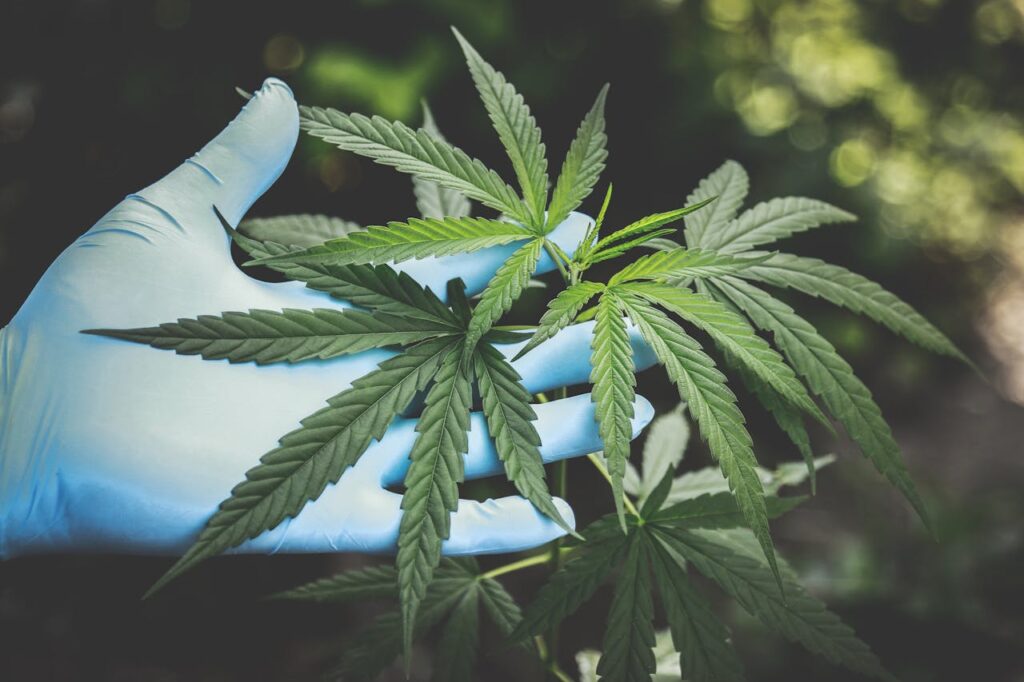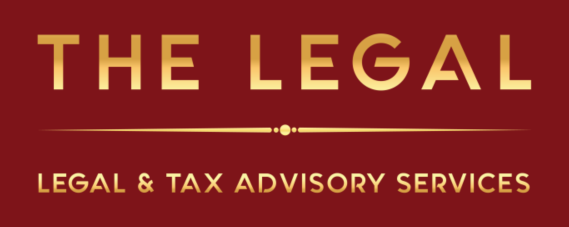

Since 2010, the Global Law Experts annual awards have been celebrating excellence, innovation and performance across the legal communities from around the world.
posted 1 year ago
Introduction:
Thailand’s Draft Amendment to Cannabis and Hemp Act represents a significant step in the country’s approach to regulating these plants. This comprehensive legislation aims to balance the economic potential of cannabis and hemp with necessary safeguards for public health and safety. The act acknowledges that cannabis and hemp are no longer classified as narcotics under Thai law and seeks to establish appropriate control measures while promoting their development for maximum economic benefit.
The Thai government has initiated a public hearing process for the Draft amendment of Cannabis and Hemp Act, demonstrating a commitment to transparent and inclusive policymaking. This process recognizes that the following groups will be affected by this legislation:
The public hearing document outlines the following background and objectives:
The act introduces a comprehensive licensing system for various activities related to cannabis and hemp:
Cultivation licenses are categorized based on the size of the cultivation area:
Licenses can be granted to:
The new draft clearly specifies that it controls extracts, residues, or remnants from extraction with THC content not exceeding 0.2% in plants.
No license is required for the use, sale, production, and export of roots, stems, branches, leaves, and seeds of cannabis and hemp.
License holders are subject to several obligations, including:
It is forbidden to advertise or conduct marketing communications related to:
Advertising or marketing communications about cannabis, hemp, or extracts that are not prohibited must not:
The licensing authority can issue written orders to cease offending advertisements.
The new draft introduces several sales restrictions:
Individuals cultivating cannabis or hemp before the law takes effect must apply for a license within 60 days of the law’s implementation.
The act outlines procedures for license suspension (up to 180 days) and revocation, including an appeals process for licensees who disagree with official decisions.
The act provides clear guidelines for license holders who wish to cease their operations, including notification requirements and procedures for disposing of remaining stock.
The Draft Amendment to Cannabis and Hemp Act introduces several significant changes compared to the previous regulatory framework:
Thailand’s Draft Amendment to Cannabis and Hemp Act represents a significant step towards creating a robust regulatory framework for the cannabis and hemp industry. By establishing a structured licensing system, imposing clear obligations on license holders, and implementing strict advertising and sales regulations, the act aims to balance the economic potential of cannabis and hemp with necessary safeguards for public health and safety.
The comprehensive nature of this legislation demonstrates Thailand’s commitment to addressing various aspects of the cannabis and hemp industry, from cultivation to marketing. The recent amendments reflect the government’s efforts to create a balance between utilizing the benefits of cannabis and hemp and preventing negative impacts on society by establishing a clearer and more comprehensive legal framework.
The comparisons with the previous law highlight the substantial shift in Thailand’s approach to cannabis and hemp regulation. The draft amendment moves from a prohibitive stance to a more nuanced, economically-focused framework while maintaining public health safeguards. This change represents a significant evolution in policy, potentially opening up new economic opportunities while still addressing public health and safety concerns.
The initiation of a public hearing process further underscores the government’s commitment to inclusive policymaking. By seeking input from various stakeholders, including the general public, community enterprises, entrepreneurs, and farmers, the government aims to refine the legislation to better serve the needs of all affected parties while achieving its regulatory objectives.
As the legislative process continues, stakeholders from various sectors will likely contribute to refining this regulatory framework, potentially shaping the future of the cannabis and hemp industry in Thailand. The transition from the previous restrictive approach to this more comprehensive and economically oriented framework will likely have far-reaching implications for businesses, healthcare providers, and consumers in Thailand.
Stay informed with the latest legal developments at Global Law Experts
Author


No results available
posted 42 minutes ago
posted 42 minutes ago
posted 42 minutes ago
posted 43 minutes ago
posted 43 minutes ago
posted 3 days ago
No results available
Find the right Legal Expert for your business
Global Law Experts is dedicated to providing exceptional legal services to clients around the world. With a vast network of highly skilled and experienced lawyers, we are committed to delivering innovative and tailored solutions to meet the diverse needs of our clients in various jurisdictions.

Thinking of buying property in Brazil? Start with a full legal safety net.
✔️ Check title and ownership history
✔️ Verify no debts or disputes
✔️ Confirm zoning and permits.
#BrazilProperty #RealEstateInvesting #LegalDueDiligence #ForeignInvestment #PropertyLaw #GlobalRealEstate #InvestmentRisk #BrazilLaw

When your international business faces financial distress, quick action is key! 🔑 Negotiating with creditors, restructuring debt, and understanding insolvency laws can help regain stability. Global Law Experts is here to guide you through your options.
🌍Explore the details on our website.
🔗Link in bio
#GlobalLawExperts #CommercialLaw #BusinessLaw #LegalAdvice #BusinessGrowth #LegalTips #BusinessStrategy #LegalCompliance #Law #LegalKnowledge #LegalAwareness #Law101 #LegalEducation #IntellectualProperty

Thinking of buying property in Brazil? Don’t stop at the contract or key handover. Make sure the title is officially registered before calling it yours.
#BrazilRealEstate #PropertyLaw #GlobalInvestment #ForeignInvestors #LegalTips #DueDiligence #RealEstateRegistration #SecureInvestment

Getting a termination notice right now? Know your rights. Valid reason, fair process, proper notice they matter. Don’t let a bad dismissal walk away without accountability.
#EmploymentLaw #WorkerRights #Termination #LaborLaw #FairDismissal #WorkplaceJustice #LegalAwareness #GlobalWorkforce

Running a business is hard enough — lawsuits shouldn’t make it harder. 🚫 Protect your business with the right legal strategies and expert tools from Global Law Experts. Let’s secure your future together! 💼
🌍Explore the details on our website.
➡️www.globallawexperts.com
#GlobalLawExperts #CommercialLaw #BusinessLaw #LegalAdvice #BusinessGrowth #LegalTips #BusinessStrategy #LegalCompliance #Law #LegalKnowledge #LegalAwareness #Law101 #LegalEducation #IntellectualProperty #Infringed #Ecommerce #LegalBranding
Global Law Experts is dedicated to providing exceptional legal services to clients around the world. With a vast network of highly skilled and experienced lawyers, we are committed to delivering innovative and tailored solutions to meet the diverse needs of our clients in various jurisdictions.

Thinking of buying property in Brazil? Start with a full legal safety net.
✔️ Check title and ownership history
✔️ Verify no debts or disputes
✔️ Confirm zoning and permits.
#BrazilProperty #RealEstateInvesting #LegalDueDiligence #ForeignInvestment #PropertyLaw #GlobalRealEstate #InvestmentRisk #BrazilLaw

When your international business faces financial distress, quick action is key! 🔑 Negotiating with creditors, restructuring debt, and understanding insolvency laws can help regain stability. Global Law Experts is here to guide you through your options.
🌍Explore the details on our website.
🔗Link in bio
#GlobalLawExperts #CommercialLaw #BusinessLaw #LegalAdvice #BusinessGrowth #LegalTips #BusinessStrategy #LegalCompliance #Law #LegalKnowledge #LegalAwareness #Law101 #LegalEducation #IntellectualProperty

Thinking of buying property in Brazil? Don’t stop at the contract or key handover. Make sure the title is officially registered before calling it yours.
#BrazilRealEstate #PropertyLaw #GlobalInvestment #ForeignInvestors #LegalTips #DueDiligence #RealEstateRegistration #SecureInvestment

Getting a termination notice right now? Know your rights. Valid reason, fair process, proper notice they matter. Don’t let a bad dismissal walk away without accountability.
#EmploymentLaw #WorkerRights #Termination #LaborLaw #FairDismissal #WorkplaceJustice #LegalAwareness #GlobalWorkforce

Running a business is hard enough — lawsuits shouldn’t make it harder. 🚫 Protect your business with the right legal strategies and expert tools from Global Law Experts. Let’s secure your future together! 💼
🌍Explore the details on our website.
➡️www.globallawexperts.com
#GlobalLawExperts #CommercialLaw #BusinessLaw #LegalAdvice #BusinessGrowth #LegalTips #BusinessStrategy #LegalCompliance #Law #LegalKnowledge #LegalAwareness #Law101 #LegalEducation #IntellectualProperty #Infringed #Ecommerce #LegalBranding
Send welcome message